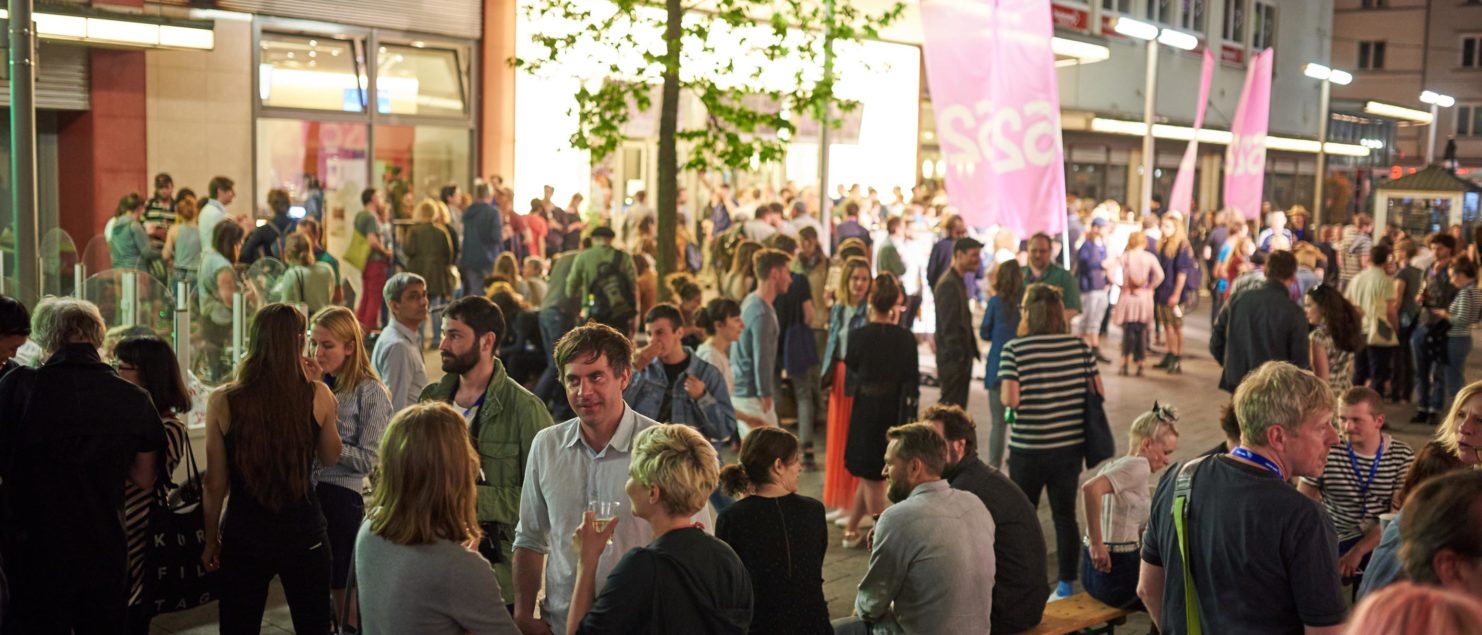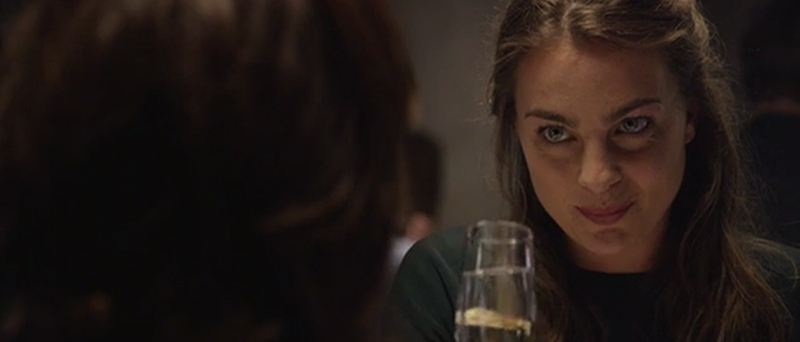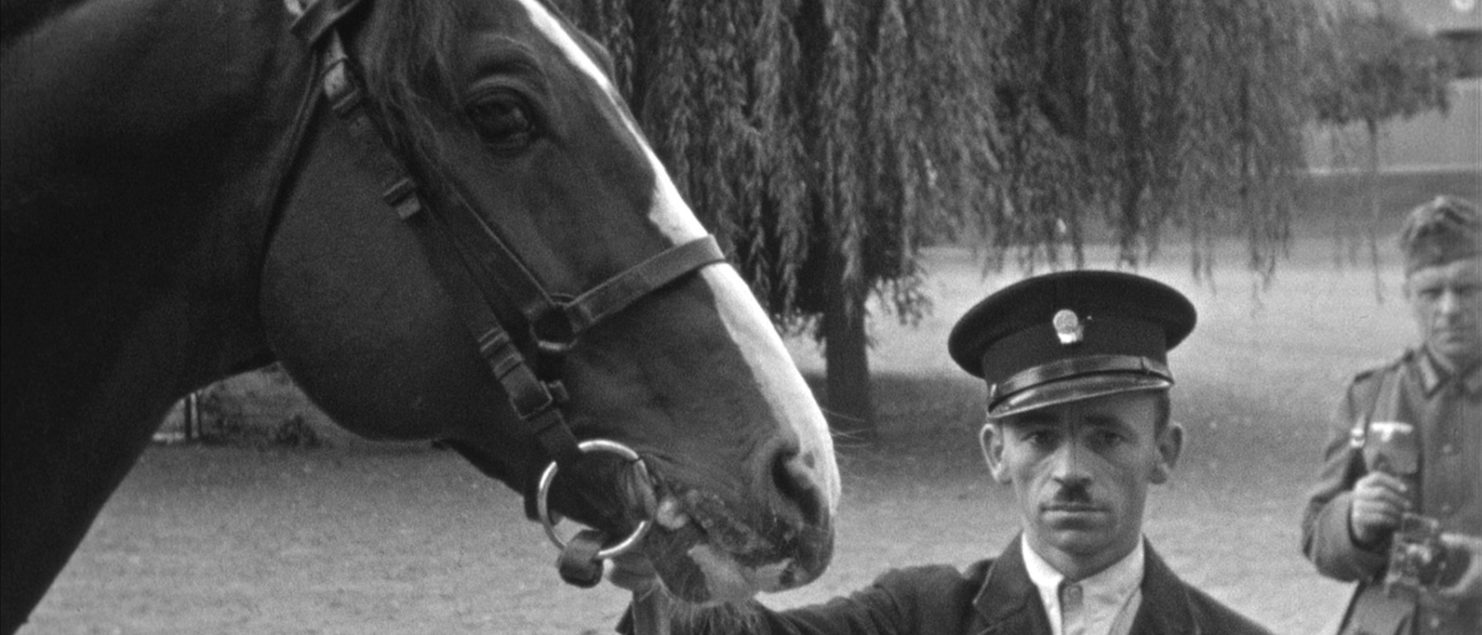Oberhausen 64
Richard Dinter Snö (Snow) (Sweden)
Some images are abstract fields of grey and white with a few shimmering bright points, others more clearly a dense sheet of snow falling on a country road, often shot from a vehicle moving through the storm, with a deep unrooted melancholy in the specificity of the images, and a calm, simply told recollection of the journey through the moribund landscape. A sense of the inevitable is slowly revealed in the hardly stated, yet irrevocable fact of the situation the filmmaker is navigating.
Christoph Girardet Synthesis (Germany)
Peter Bennett with his comforting British actor voice reads the opening of the St. James Genesis as if it were a Shakespearean text, extracting from it both personal significance and a description of the origin of the world that sounds simultaneously fictional and scientific. The reading informs a series of exquisite images, pulled from advertising, educational and corporate films, in two adjacent windows on screen, resonating ambigously both with each other and with the spoken text. A highly pleasurable experience, operating on a deep emotional level.
Deimantas Narkevičius 20.July 2015 (Lithuania)
The simple dismantling of a statue that celebrated the cult of the worker, a communist era statue on a bridge, removed piece by piece by a group of workers, their dignity and labor no longer a cause of celebration but only another task, a task clumsily performed. Presented in glorious 3D, with glasses, a visual synecdoche both ridiculous and slightly tragic.

Clemens von Wedemeyer Die Pferde des Rittmeisters Harald VietinghoffRiesch, 1939-41 (Germany)
The images are taken from a cache of footage the filmmaker took from his grandfather’s estate, images of horses used by Hitler’s army during the early war years. The shooting is great, beautiful framing, emphasizing the dignity of the horses, deliberate camera moves, unexpected moments revealed. These extraordinary images are accompanied by the filmmaker’s commentary, a film scholar’s analysis of the Nazi ideology underlying the content but also both the cinematic techniques and cinematographer’s decisions in the details of what we see on screen: no horrific images, yet a brutality and worldview that is equally disturbing.
Sonja Wyss She / Her (Netherlands)
Starting with a painfully familiar dialogue scene between a mother and her adult daughter in a restaurant, driven by the standard critiques from the mother and the expected silences from the daughter. Then, alone in the rest room, the daughter’s gestures of frustration become something odder, something twitchy and controlled, almost dancelike, and yes, on return to the table, the dialogue is transformed into a full out dance scene, like a musical, the entire clientele of the restaurant participating. The merging of the two formats is unexpected, thrilling, chilling. And, like most works in the festival, She/Her is characterized by fine cinematography, elegant editing, and refined performances.
Nina Yuen Narcissus (USA)
The filmmaker plays Narcissus, but her love of her own image is tainted, sullied by a pronounced self disgust.Though the viewer feels uneasy by the Yuen’s display of the body she’d like to fall in love with but cannot, the very existence of the moving image work suggests a more fundamental and playful relationship between herself and her image.
The film describes five different relationships with the self: the never-changing watcher of the watcher; the intertwined, codependent relationship; the self-critical internal bully; the obsessive self-lover; and the self without awareness of itself. Narcissus drowns when he tries to embrace his reflection, but for Nina the lake is not where the danger lies.
Images at the top of the review:
First Image: 62 Internationale Kurzfilmtage Oberhausen, Festivalkino Lichtburg Filmpalast. Photograph by Daniel Gasener. © Kurzfilmtage / Daniel Gasenzer. Courtesy Internationale Kurzfilmtage Oberhausen.
Second Image: Sonja Wyss, She/Her (2016), frame enlargement. Netherlands. Screengrab.
Text by Grahame Weinbren



